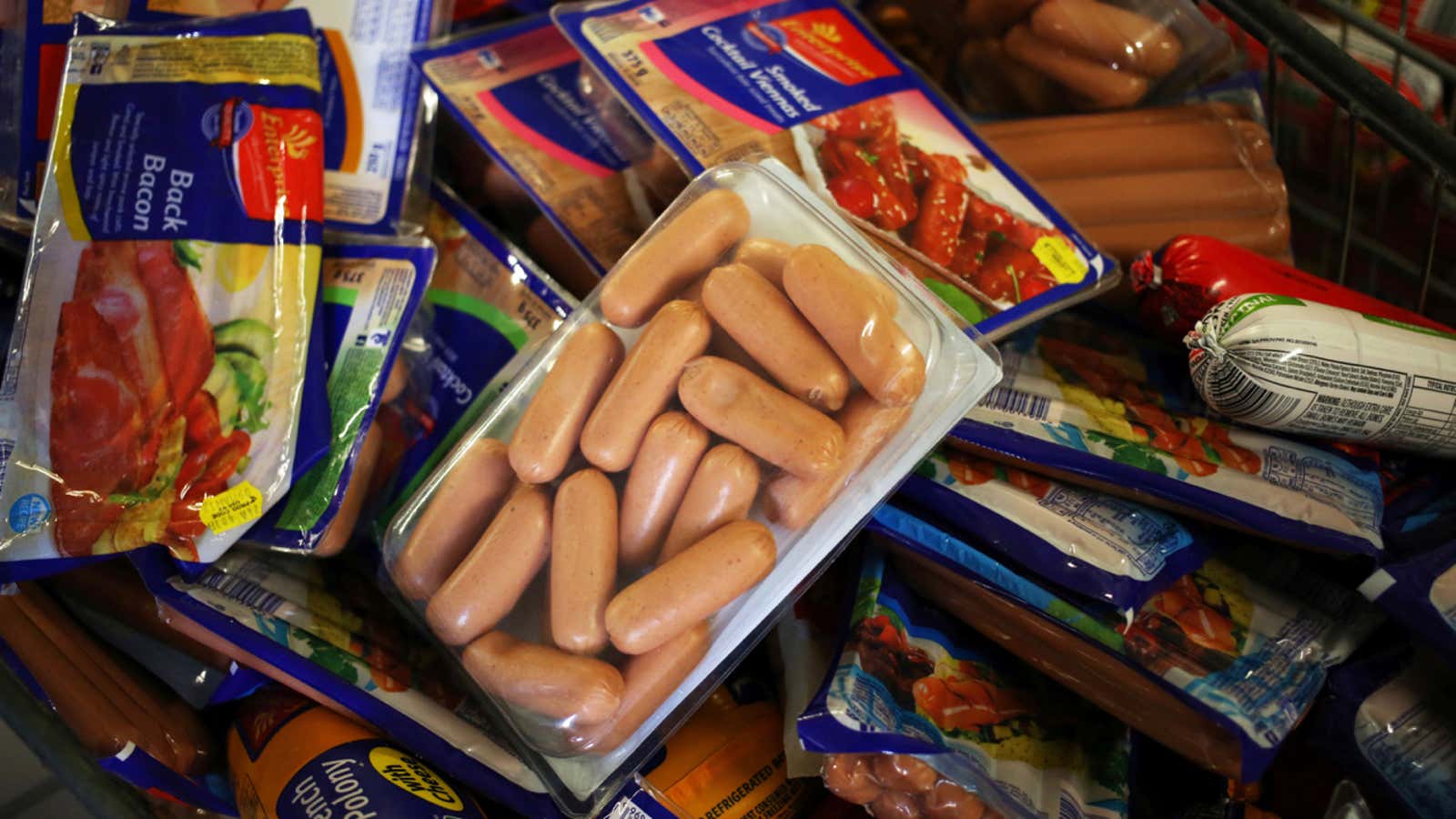South Africans now have reason to fear some of their favorite foods.
An outbreak of listeria responsible for the deaths of at least 180 people has been traced to processed meats, the health ministry said in a statement on March 4. The foods carrying the Listeria monocytogenes bacteria are ready-to-eat staples of the South African lunchbox: rolls of cold meat known as polony, and sausages known as viennas and russians.
Health minister Aaron Motsoaledi first warned about the outbreak in December last year after it killed nearly 40 people, mainly in the most populated province Gauteng, which is home to Johannesburg and Pretoria. Now, with 727 confirmed cases, the World Health Organization says it is the largest ever recorded outbreak of the disease.
Ground zero of the outbreak has been traced to factories owned by Enterprise Foods (a subsidiary of the regional food giant Tiger Brands) and one of the largest poultry producers, Rainbow Chicken. Both distribute their products across the border to South Africa’s neighbors.
The National Institute of Communicable Diseases finally traced the source after children at a Soweto crèche were admitted to hospital with symptoms of food poisoning after eating at the crèche.
A foodborne disease found in animals, the bacterium is often found in unpasteurized milk, vegetables grown in contaminated soil, and prepared meat products. Unlike other foodborne pathogens, listeria multiplies even when refrigerated, according to the WHO.
Contaminated food is itself a hazardous waste, and people are being urged not to discard food products, but rather to return them to stores. Enterprise and Rainbow Chicken products have been recalled, and Tiger Brands stock price plummeted before making a recovery. Namibia, Mozambique and Zimbabwe have suspended imports of the affected products, and Botswana and Zambia have pulled the products from grocery stores.
South Africans have largely responded with humor—with the exception of the controversial lobby group Black First Land First, which wants to bring murder charges against the food brands. Polony and processed sausages known here as viennas and russians are the key ingredient in the unofficial sandwich of the Gauteng’s townships, the kota, and the Cape Flats’ iconic sandwich, the gatsby.
These foods are undoubtedly unhealthy, but they are affordable—so much so that they are part of the culture of South Africa’s still segregated townships. But the listeria outbreak has also affected foods favored across the class divide. The high-end grocer Woolworths announced that its more expensive products were manufactured at the same source, issuing a recall for products like chargrilled ham, chorizo and coriander salami.
